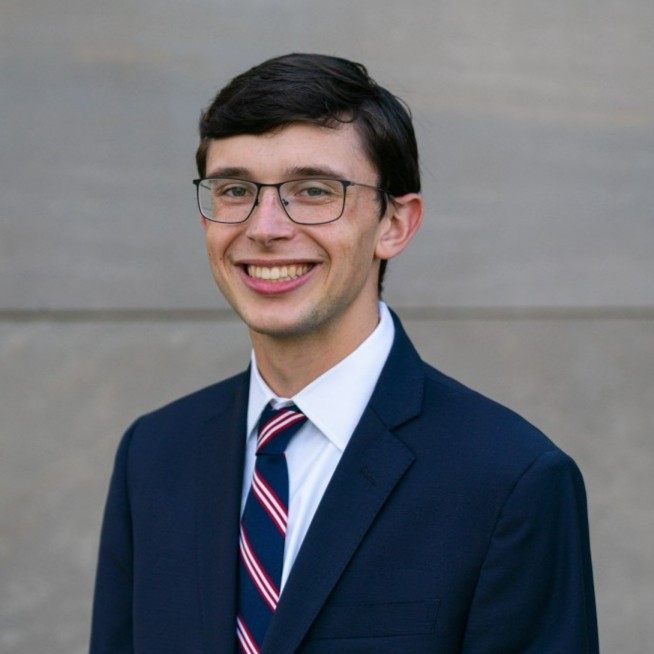By Kate Marriott

Every three years, Wesleyan seniors have the opportunity to apply for the Keasbey Memorial Scholarship. The Keasbey Scholarship funds American students interested in pursuing an additional undergraduate or graduate degree in select universities in the United Kingdom. The Keasbey Memorial Foundation seeks scholars who demonstrate “academic excellence, active participation in extracurricular activities, leadership abilities, and the promise of personally and intellectually benefiting from one or two years of study in Britain.” Every third year, Wesleyan can nominate two seniors to be considered for the award, alongside candidates from Amherst, Bowdoin, Brown, Cornell, Dartmouth, Harvard, Haverford, Middlebury, Princeton, Swarthmore, and Yale.
This February, Wesleyan’s Ben Sheriff ‘25 was named a Keasbey Scholar. Sheriff was one of eight students nominated for the scholarship among the four participating universities, including Wesleyan. Sheriff will be taking his talents to Cambridge University, where he will pursue a Master of Philosophy in American History. Wesleyan’s Professor Stephanie Weiner, a committee member who selected the nominees for the Keasbey Scholarship, described “being deeply impressed by [Sheriff’s] research project and by his intelligence, poise, and passion during [the campus] interview.” She added that his rigor and creativity as a historian are made clear through his work, in which he is “asking fascinating questions and using archives in inventive ways.”
As a History and College of Social Studies (CSS) double-major, Sheriff is writing his senior thesis about the 1859 Pig War, a boundary dispute between the United States and Great Britain in the Pacific Northwest. Sheriff challenges the existing historical scholarship on this event, arguing that rather than being understood as an Anglo-American conflict, the 1859 Pig War should be seen as a settler-indigenous conflict. Studying in the United Kingdom provides him with the opportunity to answer the project’s remaining questions, as he will be able to examine and analyze crucial sources and archives that are challenging to access as a student in the United States.
In addition to building on his current scholarship, Sheriff is excited by the prospect of growing as an academic under the Oxbridge system, which CSS mirrors. “I think what we do in CSS一the reading and writing一has made me a much better student and aspiring scholar than I was when I walked into Wesleyan,” said Sheriff. As a result, studying under the Oxbridge system at Cambridge feels like a natural follow-up for him, before he continues on to PhD studies in the US.
When asked what advice he has for future Wesleyan students aspiring to be Keasbey Scholars, Sheriff emphasized how necessary believing in himself was during the application process; the only definite way to close yourself off from an opportunity is by not applying. He also advised that future students apply based on the intellectual areas that they are passionate about, rather than framing their academic projects around what they think will be received best by those reviewing their application. “At the end of the day,” he reflected, “they are picking people who they believe care about what they want to study.”
Wesleyan will next be nominating seniors for the Keasbey Scholarship in summer 2027, so those in the class of 2028 will be the next Cardinals who can consider applying.


